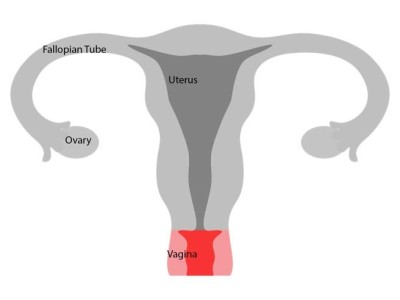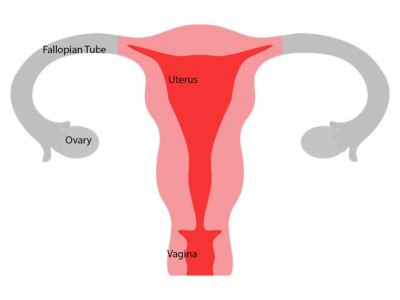This leaflet answers common questions about surgical menopause. If you would like further information, or have any questions, please do not hesitate to ask your nurse or doctor.

What is surgical menopause?
Your ovaries produce the hormones oestrogen, progesterone, and testosterone. When you go through the menopausal transition, your ovaries naturally start producing less of these hormones. Production of these hormones from the ovaries stops with your last menstrual bleed.
Surgical menopause occurs when both of your ovaries are removed using a surgical approach (called a bilateral oophorectomy) before you’ve gone through a natural menopause. This causes a sudden onset of the menopause after the surgery.
Symptoms of surgical menopause
If you have had surgical menopause, you may experience the following symptoms:
- hot flushes
- night sweats
- palpitations
- mood swings
- anxiety
- lack of sleep
- fatigue
- problems with memory and concentration
- vaginal dryness
- recurrent urinary tract infection
- muscle aches and joint pain
- loss of libido
- dry skin
Addressing symptoms: lifestyle changes
Several simple lifestyle changes can help to alleviate the following symptoms of surgical menopause.
Hot flushes/night sweats
- regular exercise
- optimising weight (if applicable)
- wearing lighter clothing/fewer layers of clothing
- turning down central heating and using a fan to keep cool
- avoiding possible triggers (such as spicy food, caffeine, alcohol, and smoking)
Sleep disturbances
- avoiding activities like exercise and phone use at bedtime
- reducing stress levels
- maintaining a regular bedtime
Low mood and anxiety
- regular physical activity
- relaxation exercises
- ensuring adequate sleep
Addressing symptoms: cognitive behavioural therapy (CBT)
Cognitive behavioural therapy is a talking therapy that can be helpful for a range of health problems, including anxiety, stress, low mood, hot flushes, night sweats, sleep problems and fatigue. CBT aims to help you improve your mood and manage your problems by separating them into smaller parts using a positive approach.
You can ask your doctor or nurse to refer you for CBT, or you can make a self-referral on the NHS website.
Addressing symptoms: hormonal replacement treatment (HRT)
When you have surgical menopause, you will be given the option to take HRT if you suffer severe hormonal deficiency symptoms.
HRT involves replacing the ovarian hormones oestrogen, progesterone and sometimes testosterone. This is available in the form of tablets, patches, gels, and sprays. Progesterone can also be given in the form of a Mirena coil.
Oestrogen is important for controlling menopausal symptoms and maintaining heart and bone health, whereas progesterone is added to protect the endometrium (lining of the uterus) from the risk of cancer. Testosterone can be given if you experience a loss of libido.

Figure one shows the female reproductive system after a hysterectomy (removal of the uterus), and bilateral salpingo-oophorectomy (removal of the fallopian tubes and ovaries on both sides).
If you have had a hysterectomy with a salpingo-oophorectomy (see figure 1), oestrogen only HRT can be given. This is because there is no endometrium, and so progesterone is not needed.

Figure two shows the female reproductive system after a bilateral salpingo-oophorectomy. For women who have had a bilateral oophorectomy, or salpingo-oophorectomy, without a hysterectomy (see figure two), a combined HRT can be given which includes both oestrogen and progesterone.
Please speak to your GP or your gynaecologist for more information about the benefits and possible side-effects of HRT.
Addressing symptoms: alternative medications
In cases where HRT is not suitable or not desired, alternative medications can help with symptoms of hot flushes, night sweats, sleep disturbance and mood changes. These include:
- Serotonin Re-uptake Inhibitors (SSRIs): Fluoxetine, Paroxetine, Citalopram, Sertraline
- Serotonin Noradrenaline Re-uptake Inhibitor (SNRIs): Venlafaxine
- Gamma-Aminobutyric Acid Analogues: Gabapentin, Pregabalin
- Clonidine
Please speak to your GP or your gynaecologist for more information on taking medication for symptoms of menopause.
Vaginal oestrogen
Low oestrogen levels in the vagina can manifest in various symptoms including soreness, itching, dryness, bleeding, painful sex, leaking of urine or prolapse symptoms. Vaginal oestrogen in the form of creams or pessaries might help to alleviate these symptoms.
Please speak to your GP or your gynaecologist for more information on vaginal oestrogen.
 Translate
Translate